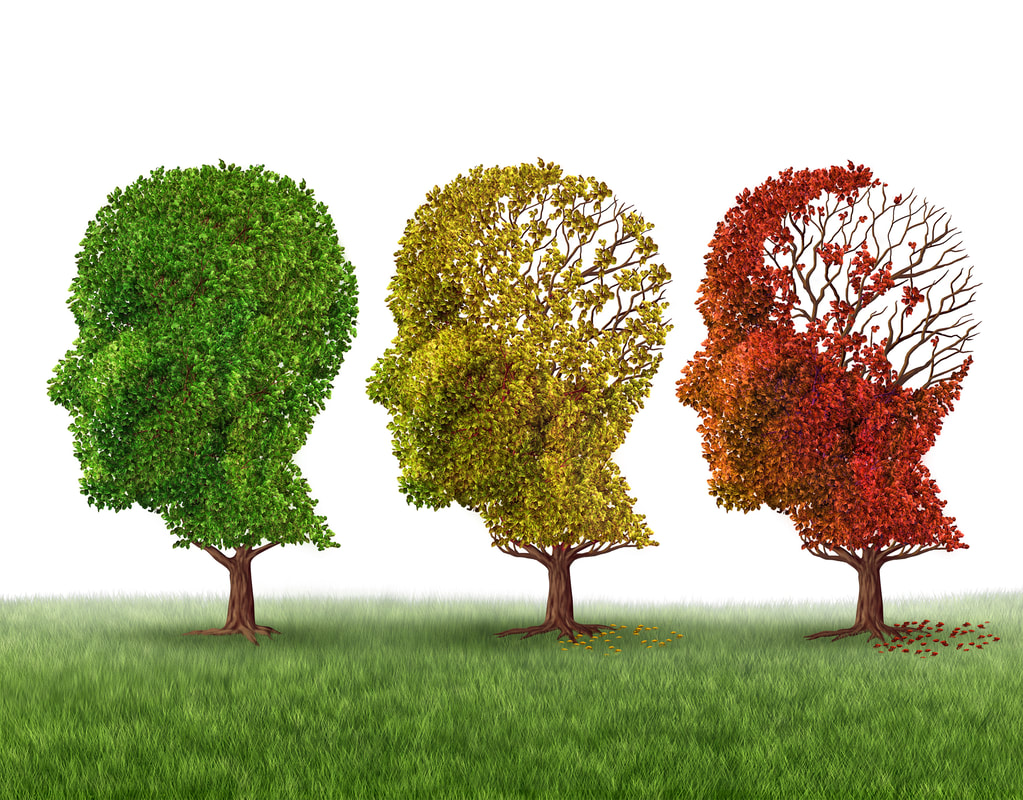 What is Dementia? Dementia is not one specific disease but rather the term used to describe a collection of symptoms that are the result of disorders affecting the brain. It impacts thinking, behaviour and the ability to complete daily tasks. It generally affects older populations and is most common in those over the age of 65, but people in their 40’s and 50’s can also develop dementia symptoms. Some of the early signs of Dementia can initially be very slight and not easily recognisable. Some common symptoms can include;
Types of Dementia There are many forms of Dementia and they each present differently and have their own respective causes, below are some of the more common types;
How can exercise help prevent Dementia? Several studies have researched the effect of aerobic exercise that increases heart rate, on improving thinking, memory and decreasing the rate of dementia in later-life. They found that engaging in regular physical activity decreases the risk of developing Dementia by 30% and for Alzheimer’s disease specifically it reduces it by 45%! One study in particular that tracked over 2,000 males for 35 years, focused on five key behaviours (regular exercise, not smoking, moderate alcohol intake, healthy body weight and healthy diet) and their effect on reducing the risk of dementia. Of these behaviours, exercise was found to have the greatest effect in decreasing Dementia risk, but participants who followed 4 or 5 of the above behaviours had a 60% decreased risk of Dementia. Exercise is beneficial in preventing or slowing the rate of decline in those with Dementia. Physical activity promotes good blood flow, particularly to the brain which then encourages new brain cell growth and survival. It also stimulates nerve cell growth and decreases cardiovascular risk factors along with reducing co-morbidity development such as Type 2 Diabetes, Obesity and high blood pressure which are all risk factors of Dementia. What type of exercise is best? So, what type of exercise should we be doing to prevent Dementia symptoms? There are three types of exercise that we should be focusing on;
Exercise benefits for people with Dementia It is encouraged for exercise to be continued for as long as is safe and feasible for those living with Dementia. There are a number of benefits for those engaging in regular physical activity, including;
If you would like to learn more about Dementia or the benefits associated with exercise, head to the Dementia Australia Website at www.dementia.org.au By Aleisha Michael Accredited Exercise Physiologist
2 Comments
ROBINSON
6/8/2021 05:06:25 pm
I don't usually talk much on the internet but I had to open up this time because a miracle happened in my life and my uncle's life. After struggling with Amyotrophic Lateral Sclerosis ALS/MND, and My uncle with Parkinson's Disease too, for five years, We finally got helped by Dr. Ziza's, World Herbs Clinic Head doctor. keeping it to myself will be selfish of me. We used his herbal remedy for Three months and was fully reversed and now we have no symptoms of both condition. I urge you all having ALS/MND, and Parkinson's to give him a try.
Reply
Your comment will be posted after it is approved.
Leave a Reply. |
AuthorSLisa Parkinson Archives
March 2024
Categories
All
|

 RSS Feed
RSS Feed